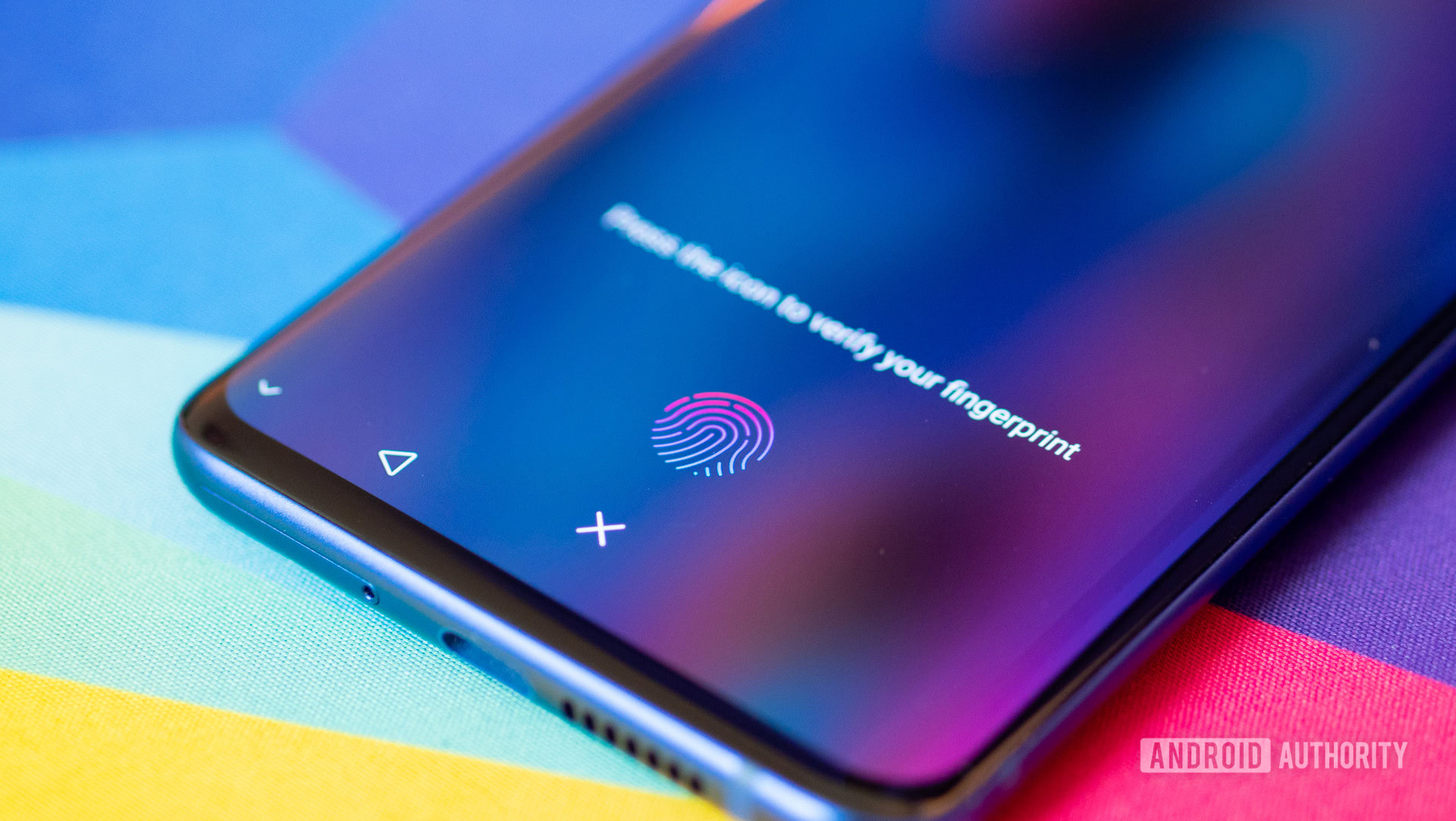Should I Use Fingerprint On Android

Samsung has spent millions on making its phones more secure, and on making sure customers know well-nigh it. You'd think all that money would be enough to fend off the threat of a $2 silicone case. Obviously not.
You don't demand a 3D printer, super-high-res photographic camera, latex molds, or whatsoever cloak-and-dagger nonsense. A dirt-cheap telephone case is all you lot need to unlock someone's Samsung flagship.
이슈가 되고 있는 갤럭시 S10, 노트10 기종 실리콘 케이스 지문인식 뚫리는 현상 테스트해봤습니다….
Information technology's hard to excuse this massive breach of trust, and it's fifty-fifty harder to empathise why Samsung has so far failed to apologize to customers. Yet, this embarrassing mishap isn't that surprising in the scheme of things.
Biometrics make for poor security anyway
The truth is, fingerprints and other biometric authentication methods are flawed. Y'all shouldn't rely on them if y'all really care well-nigh mobile security. PINs and passwords are much more secure — if less user-friendly — methods of hallmark.
There are several reasons why an old-fashioned countersign is preferable to fingerprint readers, facial scanners, or retina/iris scanners.
For ane, it's easier to strength someone to unlock their device with their fingerprint or face than it typically is to forcefulness them to reveal a password or PIN. Information technology's much easier to fob people into unlocking their device likewise — sometimes all it takes is to place the device in front of them while they're sleeping (simply ask Google Pixel iv reviewers).
An sometime-school password is preferable to fingerprint readers, facial scanners, or retina/iris scanners
You could argue that fingerprint and facial scanners are adept plenty for 99% of users. Granted, most people volition never accept to worry about authorities rummaging through their messages or any shady entities stealing their fingerprints from their Facebook profile. It's also truthful that biometric sensors have improved security for millions of users who, otherwise, could not exist bothered with typing a Pin every time they unlock their phones.
How practice you update your fingerprints or your retina?
But the stakes are getting higher all the time. Nosotros now use our faces and fingerprints to unlock our banking company accounts, authorize payments in stores, and gain access to password lockers similar LastPass. For at present, that means your digital identity. In a few years, smartphones will exist your identity, both online and in real life.
Finally, passwords have another massive reward over biometric authentication methods: they're dispensable. You can ever alter your PIN or password, but what happens when your immovable physical traits leak? How exercise you update your fingerprints or your retina?
What you can practise
If you're worried virtually smartphone security, in that location are a few simple things yous can do to protect yourself:
- Option a secure authentication method (PIN or password), but don't be lazy: the more than characters you use, the safer.
- Avoid pattern locks. They're easier to spy on, and less secure than a good Pin or password.
- Disable features like Smart Lock that keep the device unlocked when it's in sure areas or when a Bluetooth device is connected.
- Understand the difference between the diverse face unlock methods — the ones that use laser or infrared to scan your face are more than secure than those that rely on the front-facing photographic camera.
- Enable Lockdown mode, available on Android Pie and later. This gives yous the selection to quickly disable all unlocking methods except the PIN or countersign.
- Familiarize yourself with your specific telephone'southward security features. Some devices offer options like the ability to hide certain apps or content backside a specific fingerprint.
- Buy devices from reputable manufacturers that are more than likely to receive regular security and system updates.
- In full general, practice basic security hygiene. The chances of getting hacked remotely are much higher than of someone getting concrete access to your device.
What is your preferred phone locking method?
What authentication method do you lot primarily use on your telephone?
10513 votes
Should I Use Fingerprint On Android,
Source: https://www.androidauthority.com/fingerprints-insecure-phone-1043477/#:~:text=The%20truth%20is%2C%20fingerprints%20and,less%20convenient%20%E2%80%94%20methods%20of%20authentication.
Posted by: smithmanneve.blogspot.com


0 Response to "Should I Use Fingerprint On Android"
Post a Comment